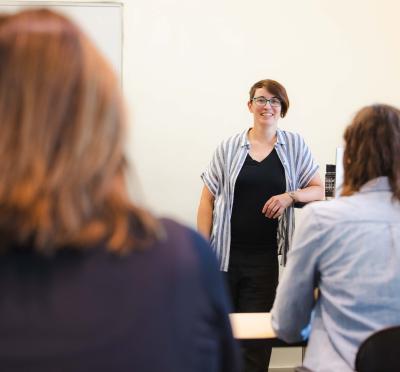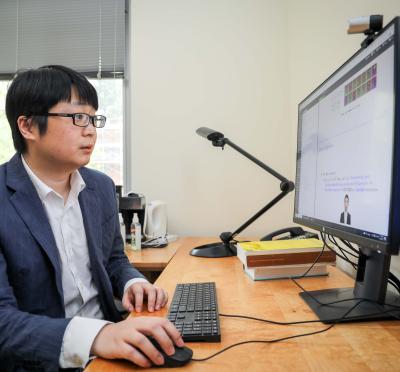In 2021, the College of Engineering collaborated with Oregon State Ecampus to launch the Center for Research in Engineering Education Online, or CREEdO, to support research that informs the development of online engineering programs.
The center funded three projects in its inaugural year. One, led by Margaret Burnett, distinguished professor of computer science, leverages the GenderMag system she developed to identify and fix gender-inclusiveness “bugs” in software. Burnett and her co-investigators, Anita Sarma, associate professor of computer science, and Lara Letaw, computer science instructor, will help Ecampus faculty create inclusive engineering courses that integrate GenderMag concepts into their online curricula. The project will create a path for the College of Engineering to become a leader in inclusive online education.
Another project, led by Raffaele de Amicis, associate professor of computer science, will eval- uate the integration of extended-reality simulations and learning tools into engineering courses. XR simulations have been suggested as a way to enhance conceptual thinking in engineering. However, there’s scant rigorous identification of the requirements necessary to implement them successfully across engineering disciplines. De Amicis and his co-investigators, Yelda Turkan, associate professor of geomatics, and Onan Demirel, assistant professor of mechanical engineering, hope to bridge that knowledge gap. The results could represent a significant contribution toward understanding how XR solutions can be used in engineering education.
In the third project, Jeff Nason, professor of environmental engineering, will assess the use of virtual laboratories for conveying engineering practices that are not easily accomplished through in-person university labs. His project team will partner with Oregon State instructors to deliver both the physical and virtual versions of a laboratory, comparing student motivation, epistemic practices, and development of an engineering identity.
The expected outcomes will include the development of partnerships outside of Oregon State and a proposal for external funding to further develop and expand the research. Nason’s project, for example, has already earned a two-year $200,000 National Science Foundation grant.



